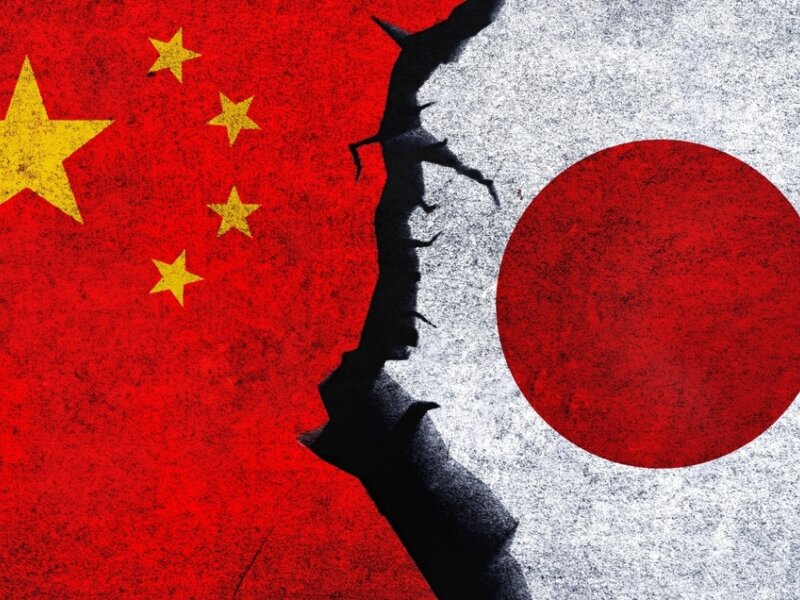Lo Sri Lanka lotta per uscire dalla crisi
Lo Sri Lanka si accorda con l’FMI per un piano di salvataggio, ma la Cina si oppone alla ristrutturazione del debito del Paese. L’analisi di Guido Bolaffi

Lo Sri Lanka lotta da mesi per sopravvivere ad una crisi economica e politica senza precedenti. Il disco verde ottenuto giovedì 1 settembre dal Fondo Monetario Internazionale sulla possibile concessione di un prestito-ponte di $2,9 miliardi permette al governo del nuovo Premier Ranil Wickremesinghe di tirare un primo ma fondamentale respiro di sollievo, consentendogli di guadagnare il tempo necessario per mettere mano alla ristrutturazione dell’enorme debito con l’estero ed evitare al Paese di finire in una catastrofica bancarotta.
Un passo avanti condizionato però da molte, insidiose incognite. Infatti, scriveva Munza Mushtaq nell’articolo pubblicato da NIKKEI Sri Lanka to obtain $2.9bn from IMF needs creditors to play, “Officials from the multilateral lender were quick to caution that is only the beginning of a long road to recovery. They also made clear that much will depend on the willingness of Sri Lanka’s existing creditors - a list that includes China - to cooperate [...] The deal remains contingent upon the approval of the IMF’s executive board in the period ahead. That, in turn, will depend on the implementation by authorities of reform actions, and on receiving financing assurances from Sri Lanka’s creditors and making a good faith effort to reach a collaborative agreement with private creditors”.
Parole che, come si dice, “mettono il dito nella piaga”. Anzi in due.
La prima relativa all’effettiva capacità-volontà riformatrice della nuova classe politica subentrata alla guida dello Sri Lanka dopo la cacciata della dinastia dei Rajapaksa. Infatti, ammoniva preoccupato l’economista Anushka Wijesinha del Center for a Smart Future di Colombo: “The problems had snowballed far beyond a foreign exchange crisis into a macroeconomic one, with swirling risks to growth, employment and the poor [...] While the program could help to set some things right if implemented successfully [but] in Sri Lanka we have a poor track of implementation”. E il giornalista Marwaan Macan-Markar, rincarando la dose, sosteneva nella sua corrispondenza da Colombo, intitolata A man with no mandate faces Asia’s toughest economic challenge: “When Ranil Wickremesinghe was sworn in as Sri Lanka’s eighth executive president [...] it capped a remarkable comeback for a six-time prime minister who lost his seat in the last polls and was only in parliament thanks to a quirk of the system”.
La seconda, molto più delicata, è l’ostilità della Cina alla ristrutturazione del debito dello Sri Lanka, che invece il Fondo Monetario Internazionale ha posto come fondamentale precondizione per la concessione del suo prestito. Una contrapposizione legata al fatto che, spiegava Ishaan Tharoor sul Washington Post dello scorso 27 luglio nell’articolo China has a hand in Sri Lanka’s economic calamity, “Sri Lanka walked into what Beijing critics have dubbed China’s debt trap diplomacy. In 2020, it received a line of $3 billion in easy credit from China to help in the repayment of its existing debts. Sri Lanka opted for this path rather than taking the more painful steps of restructuring its debts in dialogue with the IMF and pushing through austerity measures to appease the Paris Club, the grouping of 22 rich nations that are the world’s major creditors (China is not a member, a reflection of its own geopolitical ambitions and distaste for rules set by other powers)”.
Non a caso il Presidente srilankese Wickremesinghe, mentre erano in corso i colloqui del suo governo con gli emissari del FMI, in una intervista concessa il 24 agosto al quotidiano NIKKEI aveva manifestato al riguardo grande preoccupazione dicendo: “We have informed the Chinese government of the need to restructure the debt and the need for all creditors to sign from the same hymn sheet [...] China has adopted a different approach [...] China’s preferred route of refinancing its loans or deferring the repayment dates for countries in debt to Chinese banks, rather than restructuring the loans and settling for a loss-making haircut [...] The geopolitical situation in the Indian Ocean is heating up, but so far we have been able to keep it out and look at our debt problem in a purely economic manner [...] But there will be issues with how the debt is being treated and how the debt relief is to be treated. They will have some geopolitical implications”.



